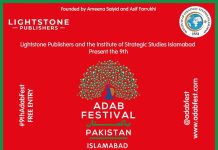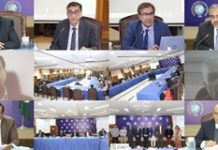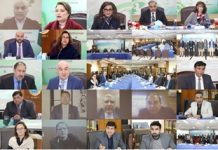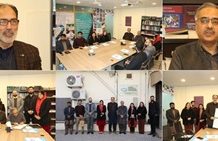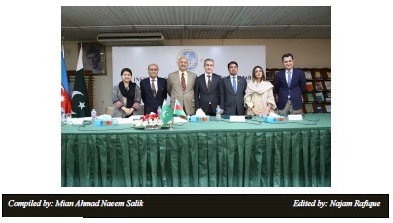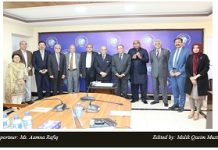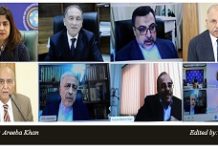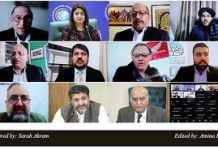The Institute of Strategic Studies Islamabad (ISSI) held a Seminar in collaboration with the Embassy of Azerbaijan titled, “Genocide and Ethnic Cleansing – Khojaly 25,” on February 21, 2017. The Chief Guest at the event was Senator Mushahid Hussain Sayed, Chairman Senate Defence Committee. Other dignitaries at the event included H.E Ali Alizada, Ambassador of the Republic of Azerbaijan to Pakistan, Ms. Shaza Fatima Khawaja, Member National Assembly and convener of Pakistan – Azerbaijan Parliamentary Friendship Group and Dr. Mohammed Khan, former HoD, Department of International Relations, National Defence University.
The Chairman ISSI, Ambassador Khalid Mahmood, welcomed the distinguished speakers and thanked the esteemed guests for participating in the event. He started off by stating that the Khojaly Genocide was one of the tragic incidents of recent history. The catastrophic incident took place on the eve of February 25-26, 1992 when the armed forces of Armenia along with terrorist groups seized the town of Khojaly and carried out massive atrocities on the civilian population, and in one night 613 civilians were killed including women and children, thousands were taken hostages and many hundreds still remain missing. The enormity of the event can be seen from the fact that about 20 per cent of the Azeri territory was occupied by Armenia with one eight of the population becoming refugees. This tragedy amounts to genocide according to the various world conventions and was recognised as such by many countries across the world including Pakistan, due to destruction of cultural and religious institutions by Armenian forces. The United Nations Security Council (UNSC), passed resolutions upholding the position of Azerbaijan. He further added that Pakistan has provided its full support to Azerbaijan in the matter, especially during Pakistan’s membership of UNSC in 1993, four resolutions were passed on the matter. He also thanked Azerbaijan for its support to Pakistan on its principal stand on Kashmir, and acknowledged the strong bond which exists between the two countries based on religious and cultural ties, and the help provided to each other during times of need. He concluded by stating that the exchanges between leadership and parliamentarians has further helped to broaden the bilateral relationship and ties between the two states.




